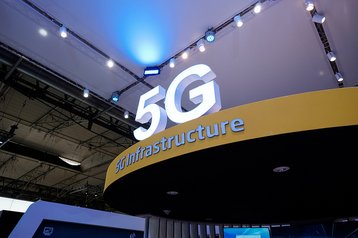5G is the fifth generation of mobile connectivity and the buzzword of 2019. Its arrival is on the horizon, prompting many to speculate about how it’s set to disrupt the market and exceed the current 4G and older 3G systems.
When 4G arrived, expectations were high. Many thought it was the answer to all our Internet woes. However, Ofcom’s latest report found geographic 4G coverage from all four networks still stands at 67 percent meaning many personal and business users in the UK are yet to fully enjoy its benefits.
So, what makes 5G different? Technically speaking, it promises faster connectivity and lower latency, with the potential to catapult the development of Industry 4.0 where everything is connected, processed and digitized.
5G: The latest
Despite 5G being widely talked about, it’s still difficult to pin down at this stage. As a nation, the UK seems to be amongst the first wave of countries adopting the new networking technology, alongside countries such as the U.S., South Korea, China and Japan.
We’ve recently seen the UK’s major networks launch initial roll outs of 5G in urban hubs. For example, Vodafone created the UK’s first 5G train station at Birmingham New Street after winning the largest block of spectrum in Ofcom’s auction.
However, the political landscape surrounding the development of 5G networks is anything but stable and this could jeopardize or delay its arrival. Huawei has found itself in the middle of a political firestorm over concerns about the future security of the 5G telecoms network, after US security agencies urged the UK Government to boycott the company due to supposed close ties to the Chinese state.
It’s important to state, however, that Huawei has strictly denied these claims and defends its position as a completely private entity.
How will businesses benefit?
When 4G arrived it was billed as a great consumer technology, whereas the benefits of 5G will be felt by businesses (at least initially). Faster communications and lower latency will mean more efficient processes and services across the board, transforming a businesses’ capability and profit margin.
There are three bands of 5G: sub 1GHz (cheap and offers wide coverage, yet slower speeds); 3.4-3.8 GHz (the main frequency layer) and >6GHz (high bandwidth with low latency). Speeds in some bands will be well in excess of 1Gb/s. This will equate to faster data transfer, in both uploading and downloading, translating into faster applications, better file-handling and improved performance.
In terms of remote working, which according to recent analysis is 74 percent more popular now then it was in 2008, 5G will improve the experience of both employees and employers by making communication and data sharing a much more efficient process. The frustrations associated with working on the move will become a thing of the past as 5G becomes available in public spaces and transport, allowing workers to carry out high-load network-related tasks on mobile devices without the need to connect to WiFi.
The productivity gains to be had from 5G extend beyond just connecting people. The development of IoT will be accelerated by 5G, spurring innovation across many industries.
The customer experience is also set to be transformed as network availability increases to 99.999 percent. 5G will bring brands and consumers closer than ever before, achieving real-time, personalized and predictive engagement. A marketeer’s dream.
How to prepare for 5G’s arrival
No matter your industry, location, company size or budget, every business should be preparing for 5G’s arrival. An exact date, or even year, is difficult to pin down at the moment but one thing’s for sure, it’ll come and you better be ready.
It’s important to stress 5G is very much a platform and not a miracle-worker. It’s a technology that is what you make of it. It can be a game changer if you can make it work for you. Those who expect it to suddenly just make things better will be left disappointed.
As such, any current road blocks, inefficiencies and skill gaps need to be addressed now. It’s also important to think about how the network technology could benefit business operations, customer experience or help you deliver innovative new products or services.
It’s good practice with any new technology investment, to plot a road map pre-adoption, bringing in insights and expertise from senior figures across department to get a clear understanding of how 5G can be used to overcome the challenges you’re facing today and are expecting face tomorrow.
Consider appointing an internal person or team to spearhead the project, working with the support of external experts where needed.
Security considerations
Unless you’ve been off the grid for the past couple of months, you’ll have seen the news stories about Huawei and whether they should or shouldn’t be allowed to help build the UK’s 5G network. This is proving to be a highly political and diplomatically-charged decision.
While businesses using 5G will have little say in the protection of critical security infrastructure at the top level, they will have the responsibility to protect against new cybersecurity risks on the ground.
5G will enable remote working on a greater scale and encourage BYOD practices, further blurring the security perimeter, as well as normalize hybrid computing, combining the risks of endpoint computing with those of cloud computing.
Any responsible business should therefore consider adopting a zero-trust security model to mitigate at least some of the heightened risk. This means every access request from any location on any device is verified, validated and authenticated before being granted.
Like with any new technology, while the majority will be using it for good, others will be dedicating their time and resources to undermining it.






